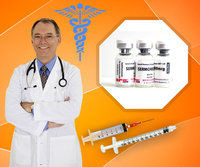Introduction
Urological conditions, encompassing a broad spectrum of disorders affecting the urinary tract and male reproductive system, have been increasingly recognized for their significant impact on mental health. This article delves into a longitudinal study focused on American males, exploring the intricate relationship between urological health and the prevalence of depression and anxiety. By understanding these connections, healthcare professionals can better address the holistic needs of their patients, ensuring both physical and mental well-being.
Understanding Urological Conditions
Urological conditions such as benign prostatic hyperplasia (BPH), erectile dysfunction (ED), and urinary incontinence are prevalent among American males. These conditions not only affect physical health but also have profound psychological implications. The discomfort and embarrassment associated with these disorders can lead to a diminished quality of life, social isolation, and strained relationships, all of which contribute to mental health challenges.
The Longitudinal Study: Methodology and Findings
The study followed a cohort of 1,500 American males aged 40 to 70 over a period of five years. Participants were assessed annually for urological health and screened for symptoms of depression and anxiety using validated psychological scales. The findings revealed a significant correlation between the severity of urological conditions and the incidence of mental health issues. Men with severe BPH or ED reported higher levels of depression and anxiety compared to those with milder symptoms or no urological issues.
Depression and Urological Health
Depression is a common mental health disorder characterized by persistent feelings of sadness and a lack of interest in activities. The study found that men with urological conditions were 1.5 times more likely to develop depression than those without such conditions. The chronic nature of many urological disorders, coupled with the impact on daily functioning, can exacerbate feelings of hopelessness and helplessness, key symptoms of depression.
Anxiety and Urological Health
Anxiety, marked by excessive worry and fear, was also found to be more prevalent among men with urological conditions. The study indicated that men with severe urinary incontinence were twice as likely to experience anxiety compared to those without incontinence. The unpredictability of symptoms and the fear of social embarrassment can heighten anxiety levels, creating a vicious cycle of worsening mental health and urological symptoms.
The Role of Stigma and Social Support
Stigma surrounding urological conditions can further compound mental health issues. Many men feel reluctant to seek help due to societal perceptions of masculinity and sexual prowess. The study emphasized the importance of social support networks in mitigating the psychological impact of urological conditions. Men with strong support systems reported lower levels of depression and anxiety, underscoring the need for community and familial encouragement.
Interventions and Management Strategies
Effective management of urological conditions requires a multifaceted approach that addresses both physical and mental health. The study recommends regular urological screenings and timely interventions to manage symptoms effectively. Additionally, integrating mental health support, such as counseling and therapy, can help men cope with the psychological burden of their conditions. Cognitive-behavioral therapy (CBT) and mindfulness-based stress reduction (MBSR) were highlighted as beneficial interventions for reducing anxiety and depression in this population.
Conclusion
The longitudinal study on American males underscores the significant impact of urological conditions on mental health, particularly in relation to depression and anxiety. By recognizing and addressing these connections, healthcare providers can offer more comprehensive care that improves overall well-being. As we continue to navigate the complex interplay between physical and mental health, it is crucial to foster an environment where men feel supported and empowered to seek help for both their urological and psychological needs.
Contact Us For A Fast And Professional Response

- 0001) Urological Health and Sexual Wellness: A Comprehensive Guide for American Men [Last Updated On: March 8th, 2025] [Originally Added On: March 8th, 2025]
- 0002) Hydration's Vital Role in Urological Health for American Males [Last Updated On: March 18th, 2025] [Originally Added On: March 18th, 2025]
- 0003) Genetic Insights into Prostate Cancer, BPH, and Kidney Disease in American Men [Last Updated On: March 18th, 2025] [Originally Added On: March 18th, 2025]
- 0004) Managing Urological Pain: Causes, Diagnosis, and Treatment Strategies for Men [Last Updated On: March 18th, 2025] [Originally Added On: March 18th, 2025]
- 0005) Urological Infections in Men: Causes, Prevention, and Management Strategies [Last Updated On: March 18th, 2025] [Originally Added On: March 18th, 2025]
- 0006) Urological Health Strategies for American Men in the Workplace [Last Updated On: March 18th, 2025] [Originally Added On: March 18th, 2025]
- 0007) Heart and Urology: Interconnected Health in American Men [Last Updated On: March 19th, 2025] [Originally Added On: March 19th, 2025]
- 0008) Urological Health and Fertility: Conditions, Diagnosis, and Management for American Males [Last Updated On: March 19th, 2025] [Originally Added On: March 19th, 2025]
- 0009) Urological Innovations Enhancing Care for American Males: Trends and Advancements [Last Updated On: March 19th, 2025] [Originally Added On: March 19th, 2025]
- 0010) Exercise Routines to Enhance Urological Health in American Men [Last Updated On: March 19th, 2025] [Originally Added On: March 19th, 2025]
- 0011) Smoking's Detrimental Effects on Urological Health in American Men [Last Updated On: March 20th, 2025] [Originally Added On: March 20th, 2025]
- 0012) Urological Health Guide for American Men: Symptoms, Detection, and Management [Last Updated On: March 21st, 2025] [Originally Added On: March 21st, 2025]
- 0013) Urological Health Essentials for American Males: Screenings, Lifestyle, and Education [Last Updated On: March 21st, 2025] [Originally Added On: March 21st, 2025]
- 0014) Urological Health Essentials for American Male Athletes: Risks, Prevention, and Care [Last Updated On: March 22nd, 2025] [Originally Added On: March 22nd, 2025]
- 0015) Understanding Urological Insurance Coverage: A Guide for Men [Last Updated On: March 22nd, 2025] [Originally Added On: March 22nd, 2025]
- 0016) Debunking Urological Myths: Facts on Prostate Cancer, Urination, and Erectile Dysfunction [Last Updated On: March 23rd, 2025] [Originally Added On: March 23rd, 2025]
- 0017) Specialized Urological Care and Services for American Veterans [Last Updated On: March 23rd, 2025] [Originally Added On: March 23rd, 2025]
- 0018) Urological Health's Psychological Impact on American Men: Addressing Stigma and Support [Last Updated On: March 23rd, 2025] [Originally Added On: March 23rd, 2025]
- 0019) Urological Health in Aging Men: Screening, Lifestyle, and Advances in Treatment [Last Updated On: March 23rd, 2025] [Originally Added On: March 23rd, 2025]
- 0020) Stress and Urological Health in American Males: Impacts and Management Strategies [Last Updated On: March 23rd, 2025] [Originally Added On: March 23rd, 2025]
- 0021) Dietary Strategies for Enhancing Urological Health in American Men [Last Updated On: March 23rd, 2025] [Originally Added On: March 23rd, 2025]
- 0022) Supplements and Urological Health: A Guide for American Men [Last Updated On: March 23rd, 2025] [Originally Added On: March 23rd, 2025]
- 0023) Obesity's Impact on Urological Health in American Men: Risks and Mitigation Strategies [Last Updated On: March 24th, 2025] [Originally Added On: March 24th, 2025]
- 0024) Urological Health in Young American Males: Importance of Early Detection and Screening [Last Updated On: March 24th, 2025] [Originally Added On: March 24th, 2025]
- 0025) Urological Surgery Recovery Guide for American Males: Tips and Strategies [Last Updated On: March 24th, 2025] [Originally Added On: March 24th, 2025]
- 0026) Urological Health and Cancer: Risks, Prevention, and Early Detection in American Males [Last Updated On: March 24th, 2025] [Originally Added On: March 24th, 2025]
- 0027) Urological Health's Impact on Mental Well-being in American Men: A Holistic Approach [Last Updated On: March 25th, 2025] [Originally Added On: March 25th, 2025]
- 0028) Urological Health: Essential Preventive Care for American Men's Well-being [Last Updated On: March 25th, 2025] [Originally Added On: March 25th, 2025]
- 0029) Urological Health in American Men: Conditions, Prevention, and Holistic Care [Last Updated On: March 25th, 2025] [Originally Added On: March 25th, 2025]
- 0030) Urological Health: Key to Fertility and Family Planning for American Males [Last Updated On: March 25th, 2025] [Originally Added On: March 25th, 2025]
- 0031) Environmental Factors Impacting Urological Health in American Males: Risks and Prevention [Last Updated On: March 25th, 2025] [Originally Added On: March 25th, 2025]
- 0032) Urological Health and Sleep Quality: A Vital Connection for American Men [Last Updated On: March 25th, 2025] [Originally Added On: March 25th, 2025]
- 0033) Managing Urological Health: Essential Travel Tips for American Men [Last Updated On: March 26th, 2025] [Originally Added On: March 26th, 2025]
- 0034) Urological Health Guide: Procedures, Diagnosis, and Care for American Males [Last Updated On: March 26th, 2025] [Originally Added On: March 26th, 2025]
- 0035) Urological Rehabilitation: Enhancing Urinary, Sexual, and Prostate Health for American Men [Last Updated On: March 26th, 2025] [Originally Added On: March 26th, 2025]
- 0036) Empowering Men: Integrating Urology into Sexual Health Education in the U.S. [Last Updated On: March 26th, 2025] [Originally Added On: March 26th, 2025]
- 0037) Urological Health and Immunity: Strategies for American Males [Last Updated On: March 26th, 2025] [Originally Added On: March 26th, 2025]
- 0038) Urological Health: Key to Longevity for American Men [Last Updated On: March 26th, 2025] [Originally Added On: March 26th, 2025]
- 0039) Technological Advances in Urological Diagnosis for American Males: Imaging, Minimally Invasive Procedures, and Beyond [Last Updated On: March 26th, 2025] [Originally Added On: March 26th, 2025]
- 0040) Exercise Benefits and Safe Practices for Urological Health in American Males [Last Updated On: March 26th, 2025] [Originally Added On: March 26th, 2025]
- 0041) Medications' Impact on Urological Health in American Men: A Comprehensive Overview [Last Updated On: March 26th, 2025] [Originally Added On: March 26th, 2025]
- 0042) Optimizing Urological Health: Best Practices for American Males [Last Updated On: March 27th, 2025] [Originally Added On: March 27th, 2025]
- 0043) Urological Health's Impact on American Men's Social Life and Well-being [Last Updated On: March 27th, 2025] [Originally Added On: March 27th, 2025]
- 0044) Alcohol's Impact on Urological Health: Risks and Strategies for American Men [Last Updated On: March 27th, 2025] [Originally Added On: March 27th, 2025]
- 0045) Integrating Urological Health into U.S. Men's Health Campaigns: A Vital Step Forward [Last Updated On: March 27th, 2025] [Originally Added On: March 27th, 2025]
- 0046) Urological Health and Vision: Exploring Connections and Impacts in American Men [Last Updated On: March 27th, 2025] [Originally Added On: March 27th, 2025]
- 0047) Managing Urological Health in American Men with Chronic Illnesses: Strategies and Insights [Last Updated On: March 28th, 2025] [Originally Added On: March 28th, 2025]
- 0048) Urological and Bone Health Link: Essential Insights for American Males [Last Updated On: March 28th, 2025] [Originally Added On: March 28th, 2025]
- 0049) Urological Health Impact and Management Strategies for American Men [Last Updated On: March 28th, 2025] [Originally Added On: March 28th, 2025]
- 0050) Urological Health's Impact on Mental Well-being in American Men: Awareness and Management [Last Updated On: March 28th, 2025] [Originally Added On: March 28th, 2025]
- 0051) Urological Health and Skin Care: A Vital Connection for American Males [Last Updated On: March 29th, 2025] [Originally Added On: March 29th, 2025]
- 0052) Urological Health and Hearing Loss: Vascular, Hormonal, and Inflammatory Links in American Males [Last Updated On: March 30th, 2025] [Originally Added On: March 30th, 2025]
- 0053) Urological Health: Vital for Men's Well-being and Advocacy in the U.S. [Last Updated On: April 2nd, 2025] [Originally Added On: April 2nd, 2025]
- 0054) Urological Health in American Men: Research, Impact, and Future Directions [Last Updated On: April 4th, 2025] [Originally Added On: April 4th, 2025]
- 0055) Urological Health Linked to Dental Care: Implications for American Men's Well-being [Last Updated On: April 5th, 2025] [Originally Added On: April 5th, 2025]
- 0056) Urological and Respiratory Health Link in American Males: Importance and Impact [Last Updated On: April 5th, 2025] [Originally Added On: April 5th, 2025]
- 0057) Urological and Digestive Health: Interconnected Systems and Holistic Care for American Males [Last Updated On: April 6th, 2025] [Originally Added On: April 6th, 2025]
- 0058) Urological Health's Impact on American Men's Careers: Management Strategies [Last Updated On: April 7th, 2025] [Originally Added On: April 7th, 2025]
- 0059) Urological and Endocrine Health: A Vital Connection for American Males [Last Updated On: April 7th, 2025] [Originally Added On: April 7th, 2025]
- 0060) Urological Health in U.S. Men's Policy: Need for Focus and Reform [Last Updated On: April 8th, 2025] [Originally Added On: April 8th, 2025]
- 0061) Urological Health: Breaking Stigma, Enhancing Men's Well-being in America [Last Updated On: April 10th, 2025] [Originally Added On: April 10th, 2025]
- 0062) Urological and Musculoskeletal Health: A Holistic Guide for American Men [Last Updated On: April 10th, 2025] [Originally Added On: April 10th, 2025]
- 0063) Urological and Cardiovascular Health: Critical Links and Management for American Males [Last Updated On: April 12th, 2025] [Originally Added On: April 12th, 2025]
- 0064) Urological Health in American Males: The Critical Neurological Connection [Last Updated On: April 12th, 2025] [Originally Added On: April 12th, 2025]
- 0065) Urological Health in American Men: Conditions, Screenings, and Lifestyle Impact [Last Updated On: April 12th, 2025] [Originally Added On: April 12th, 2025]
- 0066) Urological Health Integration in U.S. Men's Programs: Importance and Impact [Last Updated On: April 12th, 2025] [Originally Added On: April 12th, 2025]
- 0067) Urological Health's Impact on American Men's Family Life and Well-being [Last Updated On: April 13th, 2025] [Originally Added On: April 13th, 2025]
- 0068) Urological and Reproductive Health: Essential Connections and Care for American Men [Last Updated On: April 14th, 2025] [Originally Added On: April 14th, 2025]
- 0069) Enhancing Men's Health: The Critical Role of Urological Care in the U.S. [Last Updated On: April 15th, 2025] [Originally Added On: April 15th, 2025]
- 0070) Urological Health: Vital for Men's Well-being and Advocacy in the U.S. [Last Updated On: April 15th, 2025] [Originally Added On: April 15th, 2025]
- 0071) Urological Health Essentials for American Males: Prevention and Care Strategies [Last Updated On: April 16th, 2025] [Originally Added On: April 16th, 2025]
- 0072) Urological Health's Impact on American Men's Community Involvement and Proactive Care [Last Updated On: April 16th, 2025] [Originally Added On: April 16th, 2025]
- 0073) Urological Health and Emotional Well-being in American Men: A Holistic Approach [Last Updated On: April 16th, 2025] [Originally Added On: April 16th, 2025]
- 0074) Urological Health's Impact on American Men's Social Well-being: Insights and Strategies [Last Updated On: April 16th, 2025] [Originally Added On: April 16th, 2025]
- 0075) Urological Health and Immune Function: A Vital Connection for American Males [Last Updated On: April 17th, 2025] [Originally Added On: April 17th, 2025]
- 0076) Enhancing Men's Health: Integrating Urological Education into American Programs [Last Updated On: April 18th, 2025] [Originally Added On: April 18th, 2025]
- 0077) Urological Health and Mental Well-being: A Holistic Approach for American Males [Last Updated On: April 18th, 2025] [Originally Added On: April 18th, 2025]
- 0078) Urological Health Crucial for American Males' Well-being and Quality of Life [Last Updated On: April 20th, 2025] [Originally Added On: April 20th, 2025]
- 0079) Urological Health's Impact on American Men's Life Quality: Insights and Strategies [Last Updated On: April 21st, 2025] [Originally Added On: April 21st, 2025]
- 0080) Prostate Cancer in American Males: Understanding, Detection, and Advanced Treatments [Last Updated On: April 21st, 2025] [Originally Added On: April 21st, 2025]
















